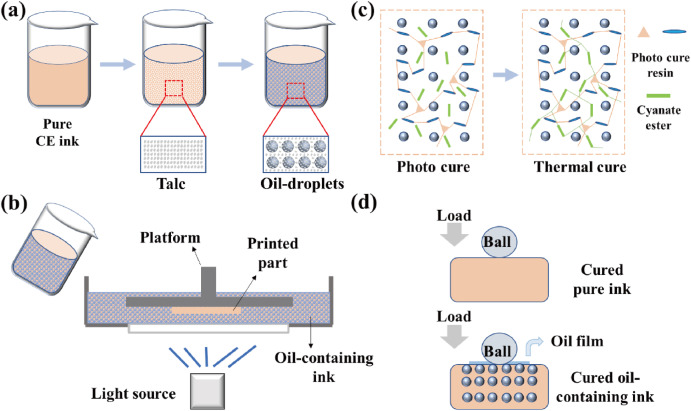Abstract
High-performance polymers incorporating liquid lubricants can be exploited to fabricate sundry solid-liquid composites for self-lubricating parts in the frontier industries, while the limitations of traditional polymer processing methods generally result in shortcomings including the complex manufacturing process, high cost, and/ or low comprehensive properties. In this paper, combining with the unique characteristics of vat photopolymerization three-dimensional (3D) printing, a novel strategy for one-step fabricating self-lubricating parts with microdroplets of oil filled in polymer, namely the vat photopolymerization 3D printing of microemulsion (microemulsion-3DP), is proposed, which realizes the incorporation of oil-droplets into the cyanate ester in a solo step. The self-lubricating properties investigated by friction tests reveal that the average coefficient of friction (COF) of the 3D printed cyanate eater with the lubricant PAO-40 one-step incorporated is decreased to ca. 0.069 from ca. 0.404 of the one without lubricant, 10 times folded nearly. As demonstrated, this innovative method of microemulsion-3DP readily achieves various self-lubricating parts, indicating the promising feasibility of fabricating parts with structures that are difficult to manufacture with traditional processing methods, which will enable a wide range of applications in aerospace, automobile manufacturing, and other cutting-edge fields.

Keywords Plus:IONIC LIQUID,MICROCAPSULES,COMPOSITES,PERFORMANCE,STABILITY
Published in COMPOSITES PART B-ENGINEERING,Volume266,10.1016/j.compositesb.2023.110996;NOV 2023


